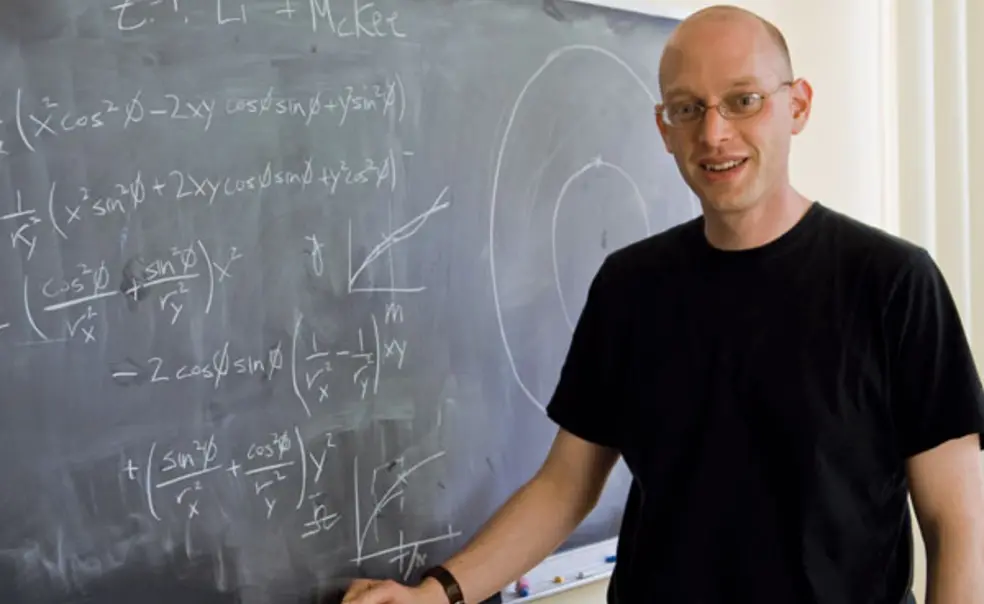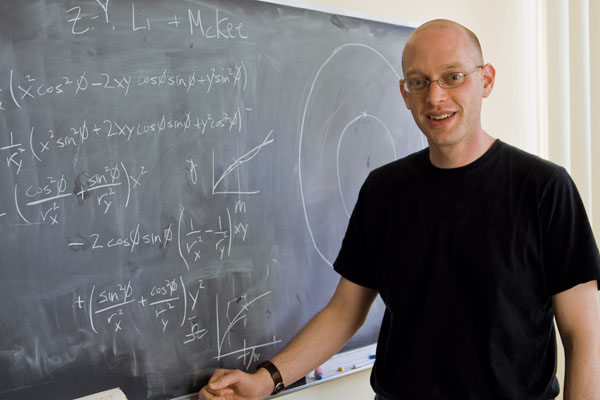Project Inside helps prison inmates earn degrees
Postdoctoral researcher Mark Krumholz ’98 is an accomplished young theorist in Princeton’s astrophysical sciences department and a recipient of the prestigious Hubble fellowship. He’s also a teacher, though not at the University. For the last three years, Krumholz and a handful of faculty and graduate students he recruited have volunteered to teach community college courses at two of New Jersey’s state prisons, helping inmates begin working toward their associate’s degrees.
Krumholz started the program, called Princeton Project Inside, partly because of his experiences as a graduate student at the University of California, Berkeley. He taught math and science courses at San Quentin State Prison in a long-running program that offered about a dozen classes per semester. By comparison, Project Inside is small but growing. It has offered algebra courses for the last two years and added an English composition class this spring. The courses supplement other classes taught by paid instructors from Mercer County Community College.
Volunteers have to clear a background check and pass through gates and metal detectors, but once inside, Krumholz said, the classroom is remarkably ordinary. Gillian Knapp, a professor of astrophysical sciences who teaches in the program, draws an important distinction: Since instructors do not have an opportunity to meet with students after class, homework assignments and feedback take on added importance. The assignments are lengthy — 50 or 60 problems per week — and challenging for students new to college-level work. “They’re struggling, but they’re also trying desperately to learn,” Knapp said. She plans to keep Project Inside going next fall, when Krumholz will begin teaching at the University of California, Santa Cruz.
Project Inside has obtained textbooks and supplies for its courses with help from the Pace Center, Princeton’s hub for civic engagement. The Pace Center has supported two new programs related to the criminal-justice system: An ACLU-hosted trip over spring break was slated to bring 10 students to southern California to learn more about prisons through site visits and conversations with inmates and experts; and in late March, student volunteers were scheduled to begin helping inmates at a prison in Bordentown, N.J., develop basic math, reading, and writing skills through the Petey Greene Prisoner Assistance Program, organized by Jim Farrin ’58.













No responses yet